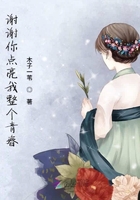A child three months buried was dragged from its grave, drawn by the feet through the sewers and wayside puddles, and then flung on a dung-heap; and, strange to say, while incendiari** and sacrilege thus ran riot, the mayor of the place slept so sound that when he awoke he was "quite astonished," to use his own expression, to hear what had taken place during the night.
This expedition completed, the same company which had brought this expedition to a successful issue next turned their attention to a small country house occupied by a widow, whom I had often begged to take refuge with us. But, secure in her insignificance, she had always declined our offers, preferring to live solitary and retired in her own home. But the freebooters sought her out, burst in her doors, drove her away with blows and insults, destroyed her house and burnt her furniture. They then proceeded to the vault in which lay the remains of her family, dragged them out of their coffins and scattered them about the fields. The next day the poor woman-ventured back, collected the desecrated remains with pious care, and replaced them in the vault. But this was counted to her as a crime; the company returned, once more cast forth the contents of the coffins, and threatened to kill her should she dare to touch them again. She was often seen in the days that followed shedding bitter tears and watching over the sacred relics as they lay exposed on the ground.
The name of this widow was Pepin, and the scene of the sacrilege was a small enclosure on the hill of the Moulins-a-Vent.
Meantime the people in the Faubourg des Bourgades had invented a new sort of game, or rather, had resolved to vary the serious business of the drama that was being enacted by the introduction of comic scenes.
They had possessed themselves of a number of beetles such as washerwomen use, and hammered in long nails, the points of which projected an inch on the other side in the form of a fleur-de-lis.
Every Protestant who fell into their hands, no matter what his age or rank, was stamped with the bloody emblem, serious wounds being inflicted in many cases.
Murders were now becoming common. Amongst other names of victims mentioned were Loriol, Bigot, Dumas, Lhermet, Heritier, Domaison, Combe, Clairon, Begomet, Poujas, Imbert, Vigal, Pourchet, Vignole.
Details more or less shocking came to light as to the manner in which the murderers went to work. A man called Dalbos was in the custody of two armed men; some others came to consult with them. Dalbos appealed for mercy to the new-comers. It was granted, but as he turned to go he was shot dead. Another of the name of Rambert tried to escape by disguising himself as a woman, but was recognised and shot down a few yards outside his own door. A gunner called Saussine was walking in all security along the road to Uzes, pipe in mouth, when he was met by five men belonging to Trestaillon's company, who surrounded him and stabbed him to the heart with their knives. The elder of two brothers named Chivas ran across some fields to take shelter in a country house called Rouviere, which, unknown to him, had been occupied by some of the new National Guard. These met him on the threshold and shot him dead.
Rant was seized in his own house and shot. Clos was met by a company, and seeing Trestaillons, with whom he had always been friends, in its ranks, he went up to him and held out his hand; whereupon Trestaillons drew a pistol from his belt and blew his brains out. Calandre being chased down the rue des Soeurs-Grises, sought shelter in a tavern, but was forced to come out, and was killed with sabres. Courbet was sent to prison under the escort of some men, but these changed their minds on the way as to his punishment, halted, and shot him dead in the middle of the street.
A wine merchant called Cabanot, who was flying from Trestaillons, ran into a house in which there was a venerable priest called Cure Bonhomme. When the cut-throat rushed in, all covered with blood, the priest advanced and stopped him, crying:
"What will happen, unhappy man, when you come to the confessional with blood-stained hands?"
"Pooh!" replied Trestaillons, "you must put on your wide gown; the sleeves are large enough to let everything pass."
To the short account given above of so many murders I will add the narrative of one to which I was an eye-witness, and which made the most terrible impression on me of, anything in my experience.
It was midnight. I was working beside my wife's bed; she was just becoming drowsy, when a noise in the distance caught our attention.
It gradually became more distinct, and drums began to beat the 'generale' in every direction. Hiding my own alarm for fear of increasing hers, I answered my wife, who was asking what new thing was about to happen, that it was probably troops marching in or out of garrison. But soon reports of firearms, accompanied by an uproar with which we were so familiar that we could no longer mistake its meaning, were heard outside. Opening my window, I heard bloodcurdling imprecations, mixed with cries of "Long live the king!" going on. Not being able to remain any longer in this uncertainty, I woke a captain who lived in the same house. He rose, took his arms, and we went out together, directing our course towards the point whence the shouts seemed to come. The moon shone so bright that we could see everything almost as distinctly as in broad daylight.
A concourse of people was hurrying towards the Cours yelling like madmen; the greater number of them, half naked, armed with muskets, swords, knives, and clubs, and swearing to exterminate everything, waved their weapons above the heads of men who had evidently been torn from their houses and brought to the square to be put to death.















